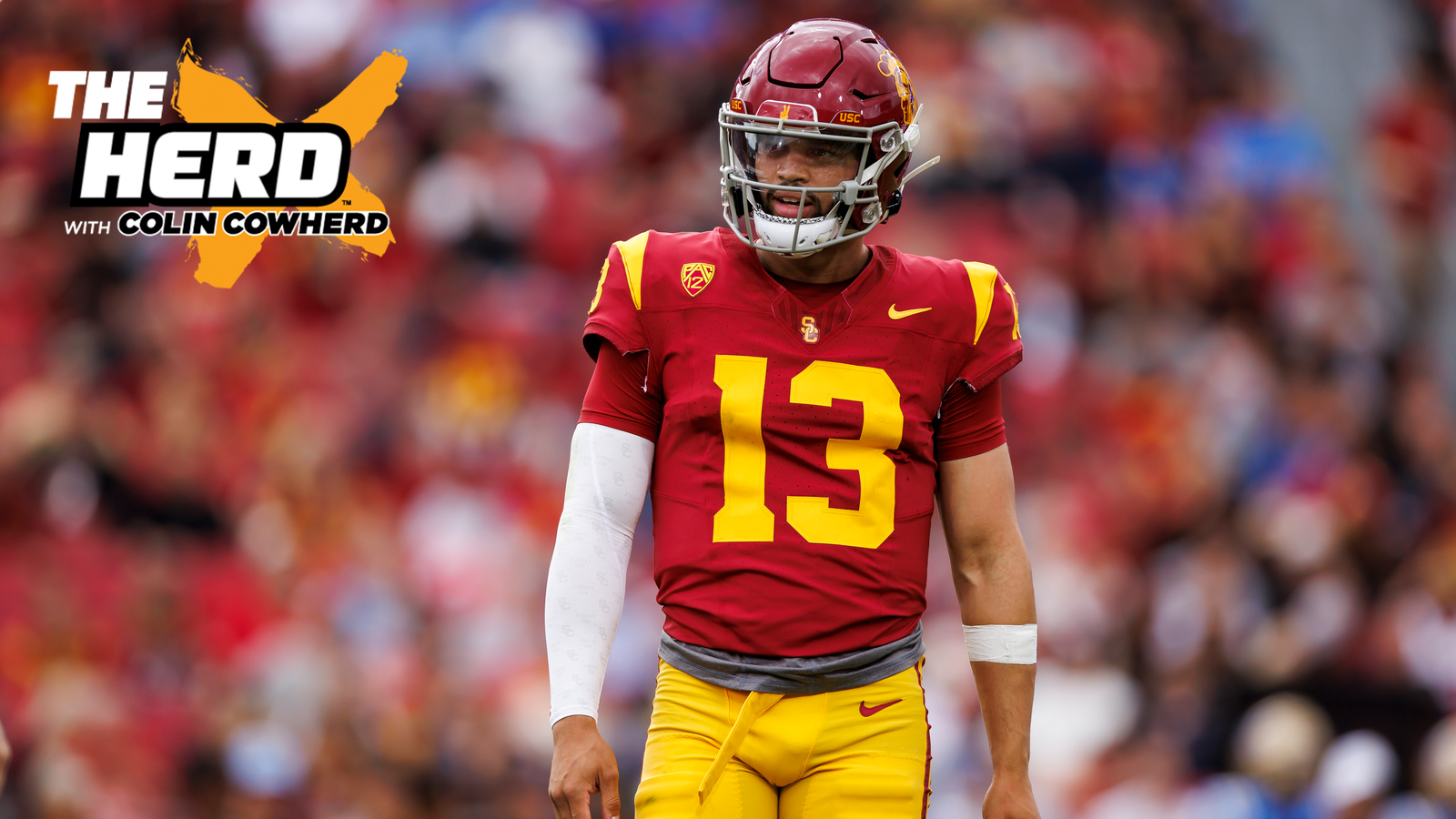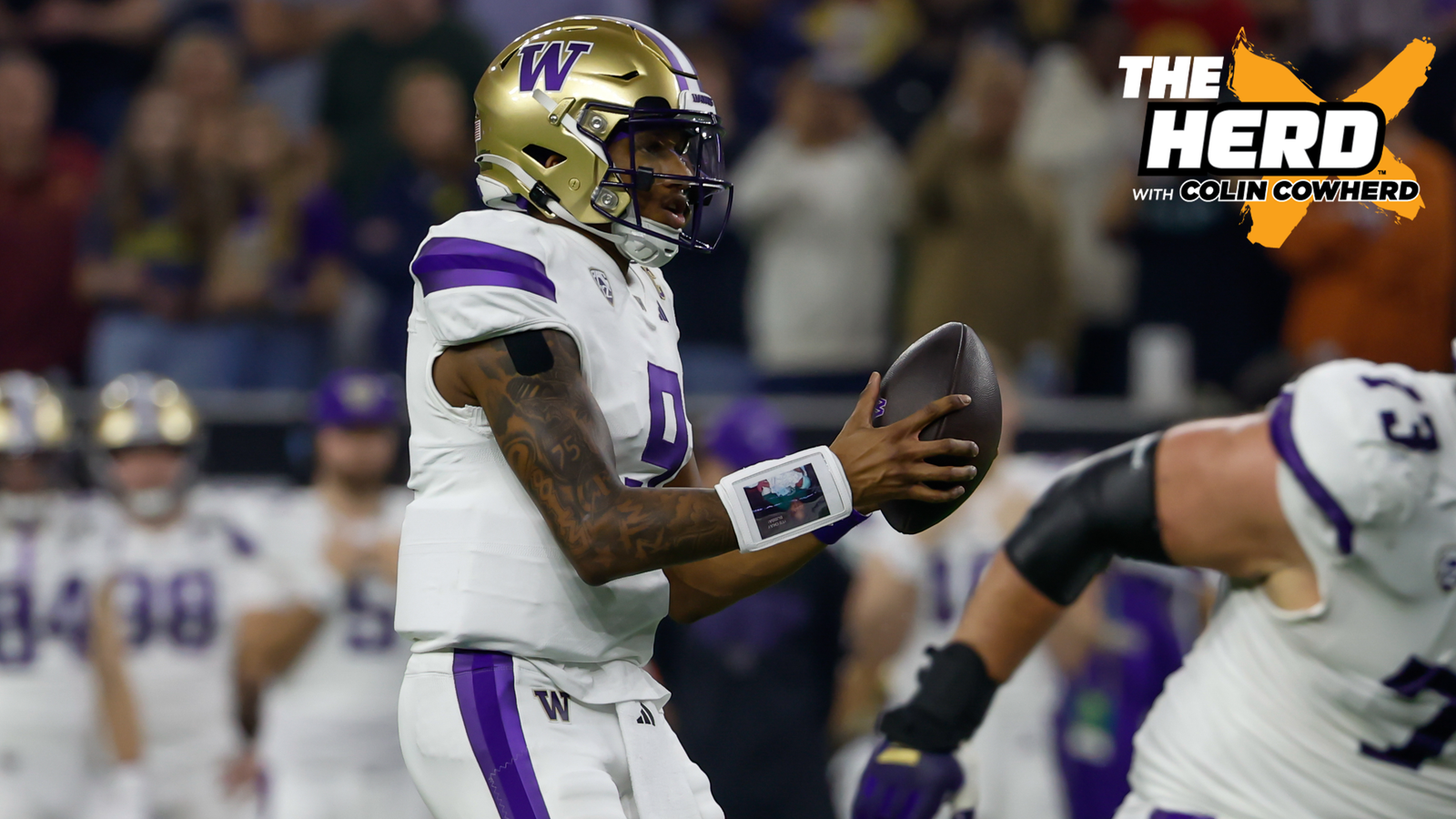
How NIL has led to a glaring lack of depth in the 2024 NFL Draft
With all due respect to the Senior Bowl and its catchy tagline suggesting the "NFL Draft Starts in Mobile," for many football fans, the process begins in earnest after the Super Bowl.
The Chiefs hoisted the Lombardi Trophy last night, after a superb finale to the postseason. And with that, we are officially in draft season.
But the depth of talent blooming this spring is much less robust than in years past, a direct result of NIL (name, image and likeness) rules and the transfer portal keeping significantly more players in college football.
The NFL announced that 54 underclassmen were granted early entry to this year's draft. That is less than half the number the league is accustomed to applying for early admission over the past decade, including a record 135 players in 2014.
The reasoning is as obvious as the numbers.
Every player dreams of NFL stardom. The fame and glory of the biggest stage in sports are tantalizing.
But for most, the biggest allure of the NFL has always been money. And with the Supreme Court's 2021 ruling that collegiate athletes are entitled to payment for their own name, image and likeness, more players are choosing the relative "easy money" of marketing deals in the present rather than the potential NFL contracts in the future.
The NFL's player pool is made even shallower by the NCAA's liberal transfer portal, which now allows prospects the ability to re-open their recruitment and play elsewhere immediately.
A record 1,127 players placed their name in the transfer portal last year, hoping the grass (and cash from NIL opportunities) really would prove greener elsewhere. That number is expected to grow even larger this year with the NCAA having two transfer-portal windows (Dec. 4-Jan. 4 and April 15-30).
A glance at the quarterbacks invited to this year's Senior Bowl illustrates how much the portal has affected college football. Of the seven quarterbacks invited to the NFL's biggest audition — South Alabama's Carter Bradley, Notre Dame's Sam Hartman, Tennessee's Joe Milton III, Oregon's Bo Nix, Washington's Michael Penix Jr., Tulane's Michael Pratt and South Carolina's Spencer Rattler — only one, Pratt, stayed and played for the same college his entire amateur career.
Essentially, the freeway from college football to the NFL now has two very large and welcoming off-ramps.
No one in the NFL is likely to publicly bemoan these changes. Most recognize the players' rights to market themselves and play where they want. Few are so naïve as to think this isn't about athletics over academics, but more time spent in college also means that more young men are earning degrees, setting themselves up for success after their playing careers are over.
Realistically, though, because so many good, young players are opting to stay in college football, the 2024 NFL draft lacks the depth we've seen in past years.
The top of the draft is still rich with future NFL stars, including at quarterback. Young arms Caleb Williams (Southern Cal) and Drake Maye (North Carolina) would earn top-five consideration in any draft, as would Ohio State wideout Marvin Harrison Jr., arguably the best player in the class.
They lead two of this year's strongest positional groups. The most uniquely gifted position this year is offensive tackle, a fact that will be proven on April 25 when more OTs are selected in the first round than any other position group.
These three positional groups feature high-end talent and solid depth expected to last well into Day 3.
They are the exception this year.
Running back, safety and notably edge rusher — the most prized position in football behind only quarterback — all feature average crops, at best.
The top-end talent in 2024 is comparable to that of recent groups. But it drops significantly after the first 125-150 players.
This year's disproportionate drop-off in talent could lead to some bold strategies April 25-27. Even more than in the past, clubs may look to package their Day 3 picks to acquire surer talent.
This was a strategy the Houston Texans and Detroit Lions used beautifully a year ago, paving their respective roads to the playoffs with dynamic rookie classes.
Clubs with extra picks on Day 1 and 2 of the draft — like the Arizona Cardinals, Chicago Bears and Green Bay Packers — are positioned well.
The Cardinals own nine picks, including five within the first three rounds. They have each of their own selections through the first six rounds, plus Houston's first- (No. 27 overall) and third-round picks and another third-rounder from Tennessee.
The Bears only currently own six draft picks, but two are among the first nine picks of the draft, including No. 1 overall, shipped to them a year ago by Carolina for the right to trade up and select Alabama quarterback Bryce Young.
The Packers have eight picks, including their native first (No. 25 overall) and extra second- and third-round selections due to trades with the Jets and Bills.
Quantity may not equate to quality in Buffalo and Cleveland, however. The Bills lead all teams with 10 picks in this spring's draft, but all the extra picks are in the fifth and sixth rounds.
Similarly, the Browns boast nine draft picks of their own, but the club traded away its first-round selection and has just two other picks before the fifth round.
Rather than throw darts at a board, don't be surprised if these two clubs are aggressive in peddling picks on draft weekend, including possibly trading out of this year's later rounds to stockpile for next year.
This brings up the ultimate question that the NFL and its 32 teams will have to grapple with moving forward: Is there reason to believe the Junior player pool will ever return to its pre-NIL and transfer policy strength?
It seems unlikely.
Unless the NCAA changes some of its rules — such as allowing players who don't make NFL rosters to return to college football and use any remaining eligibility — the league appears to have no choice but to adapt to the new normal of a diluted player pool.
Rob Rang is an NFL Draft analyst for FOX Sports. He has been covering the NFL Draft for more than 20 years, with work at FOX, Sports Illustrated, CBSSports.com, USA Today, Yahoo, NFL.com and NFLDraftScout.com, among others. He also works as a scout with the BC Lions of the Canadian Football League. Follow him on Twitter @RobRang.











